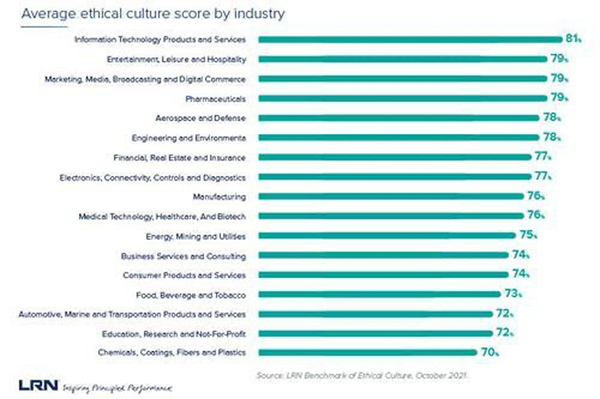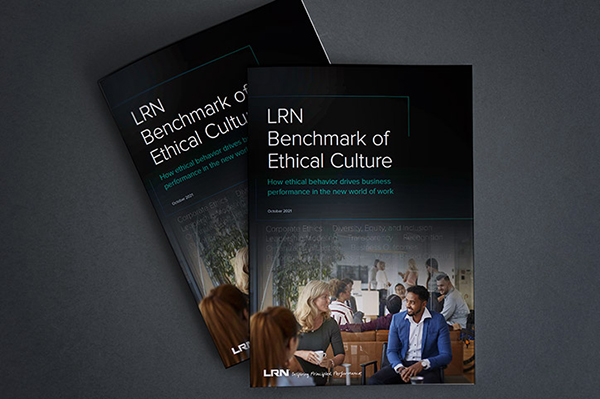One in three manufacturing employees observe misconduct—and that’s better than average across industries.
A new multi-year research effort from LRN proves that ethical culture can be measured, and that businesses with better culture outperforming peers by up to 40% across multiple metrics, including employee loyalty, customer satisfaction, and even growth.
The manufacturing industry as a whole scored high on the LRN Benchmark of Ethical Culture, a comprehensive survey of nearly 8,000 thousand employees at corporations around the world. A multi-year, collaborative research effort, the report builds on three decades of work and supporting research proving ethical culture both protects corporate reputations and propels the bottom line.
The findings reveal that in an era of stakeholder capitalism with eyes on environmental, social, and corporate governance (ESG), culture is the key to authentic or inauthentic expression of a company’s commitment to purpose, values, people, society, and planet.
Key takeaways include:

“How business defines and achieves performance has evolved,” said LRN Chief Advisory Officer Ty Francis MBE. “We’re proud to introduce a new model for achieving ethical performance and a new benchmark for an ethical corporate culture that explores the values and needs of all stakeholders.”
Said lead author Emily Miner, Senior Ethics & Compliance Advisor, LRN. “The data prove that manufacturers should prioritize ethical culture as it isn’t just the right thing to do, it is the smart thing to do.”
The LRN Benchmark of Ethical Culture is based on comprehensive data collected from nearly 8,000 employees worldwide, ranging from frontline employees to the C-suite, and representing 17 industries. It offers a unique view of ethical culture and its impact on ethical conduct and business performance. LRN, a pioneer in the ethics and compliance space, helps more than 30 million learners each year across 1,000+ companies worldwide.

For more information, access the LRN Benchmark of Ethical Culture (free with registration.)
Scott Ellyson, CEO of East West Manufacturing, brings decades of global manufacturing and supply chain leadership to the conversation. In this episode, he shares practical insights on scaling operations, navigating complexity, and building resilient manufacturing networks in an increasingly connected world.